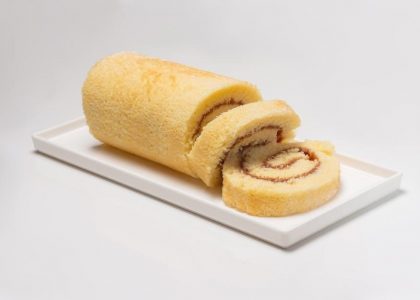Marathon Meal Plan: The Week Before (PDF Guide)
Optimize your marathon preparation with our comprehensive PDF guide! It’s designed to enhance your race week nutrition. This guide includes detailed meal plans, hydration strategies, and crucial tips to ensure you’re fueled and ready for race day success.
Carbohydrate Loading Strategy
Carbohydrate loading is a pivotal strategy for marathon runners in the week leading up to the race. The primary goal is to maximize glycogen stores in your muscles and liver, providing ample fuel for sustained energy during the 26.2 miles. This involves increasing your carbohydrate intake significantly for 3-5 days before the marathon, typically aiming for 8-10 grams of carbs per kilogram of body weight.

Focus on complex carbohydrates like pasta, rice, potatoes, and bread, while limiting fats and proteins. Timing is also crucial; start the carb-loading phase a few days before tapering your training to allow your body to effectively store the glycogen. Avoid overeating or introducing new foods during this period to prevent digestive issues on race day. Remember to maintain adequate hydration, as glycogen storage requires water.
This strategy is most effective when combined with a reduction in training volume, allowing your muscles to fully replenish their glycogen reserves. By strategically increasing your carbohydrate intake, you’ll be better equipped to tackle the demands of the marathon and sustain your energy levels throughout the race.
Sample Meal Plans for the Week Before
To effectively implement carbohydrate loading, consider these sample meal plans for the week before your marathon. These plans prioritize high-carbohydrate, easily digestible foods to maximize glycogen stores while minimizing digestive distress. Remember to adjust portion sizes based on your individual needs and preferences.
Monday: Breakfast ー Oatmeal with berries and honey; Lunch ー Turkey sandwich on whole-wheat bread with a side salad; Dinner ⎻ Pasta with marinara sauce and lean ground beef; Snacks ⎻ Banana, energy bar.
Tuesday: Breakfast ⎻ Pancakes with fruit and syrup; Lunch ー Baked potato with beans and salsa; Dinner ⎻ Rice with chicken stir-fry; Snacks ⎻ Apple slices with peanut butter, pretzels.
Wednesday: Breakfast ⎻ Bagel with jam; Lunch ー Pasta salad with vegetables; Dinner ⎻ Pizza with a thin crust and vegetable toppings; Snacks ー Grapes, rice cakes.
Thursday: Breakfast ⎻ Cereal with milk and fruit; Lunch ⎻ Sushi (avoid high-fat options); Dinner ー Sweet potato with black beans and avocado; Snacks ー Orange, toast with honey.
Friday: Breakfast ⎻ Waffles with fruit and syrup; Lunch ー Quinoa bowl with vegetables; Dinner ー Pasta with pesto and grilled chicken; Snacks ー Dried fruit, crackers.
Vegetarian Options for Marathon Week
For vegetarian marathon runners, adequate carbohydrate intake is equally crucial during race week. Here are some sample vegetarian meal plans to ensure sufficient glycogen stores and optimal energy levels. These plans emphasize plant-based sources of carbohydrates, protein, and healthy fats.
Monday: Breakfast ⎻ Oatmeal with berries, nuts, and seeds; Lunch ー Lentil soup with whole-grain bread; Dinner ⎻ Vegetable curry with brown rice; Snacks ー Apple slices with almond butter, energy bar.
Tuesday: Breakfast ⎻ Tofu scramble with vegetables; Lunch ー Black bean burgers on whole-wheat buns; Dinner ー Pasta with marinara sauce and mixed vegetables; Snacks ー Banana, trail mix.
Wednesday: Breakfast ー Pancakes with fruit and maple syrup; Lunch ー Quinoa salad with chickpeas and avocado; Dinner ⎻ Vegetarian chili with cornbread; Snacks ⎻ Grapes, rice cakes with hummus.
Thursday: Breakfast ⎻ Yogurt with granola and fruit; Lunch ー Veggie sushi rolls (avoid tempura); Dinner ⎻ Sweet potato with black beans, salsa, and guacamole; Snacks ー Orange, toast with jam.
Friday: Breakfast ⎻ Waffles with fruit and almond butter; Lunch ⎻ Vegetarian burrito bowl with rice, beans, and veggies; Dinner ー Vegetable lasagna; Snacks ⎻ Dried fruit, crackers with cheese.
Macronutrient Ratio Adjustments
During the week leading up to the marathon, adjusting your macronutrient ratios is vital to maximize glycogen storage. The primary goal is to increase carbohydrate intake while slightly decreasing fat and protein intake. This strategy, often referred to as carbohydrate loading, helps ensure your muscles are fully fueled for the endurance challenge ahead.
The typical macronutrient ratio for a balanced diet is around 50-55% carbohydrates, 20-25% protein, and 25-30% fat. However, during marathon week, aim for a ratio of approximately 65-70% carbohydrates, 10-15% protein, and 20-25% fat. This shift prioritizes carbohydrate consumption to saturate glycogen stores.
Focus on consuming easily digestible carbohydrates such as pasta, rice, bread, fruits, and vegetables. Minimize high-fiber foods, as they can cause digestive discomfort during the race. Reduce intake of fatty foods like fried items, processed snacks, and excessive amounts of oils and butter.

While reducing protein intake, ensure you still consume enough to support muscle repair and maintenance. Lean sources like chicken, fish, tofu, or legumes are suitable choices. Monitor your body’s response to these changes and adjust as needed to maintain energy levels and overall well-being.
Hydration Strategies for Race Week
Maintaining optimal hydration is crucial during race week to ensure peak performance on marathon day. Proper hydration supports essential bodily functions, regulates body temperature, and prevents dehydration-related fatigue. Start hydrating effectively several days before the race, not just the day before.
Aim to drink consistently throughout the day, consuming water, electrolyte drinks, or other hydrating fluids. Avoid relying solely on thirst as an indicator of hydration, as it may lag behind your body’s actual needs. A good guideline is to drink half your body weight in ounces of water daily, increasing this amount during race week.

Electrolyte drinks can be beneficial, especially in the days leading up to the marathon, as they help replenish essential minerals lost through sweat. Sodium, potassium, and magnesium are key electrolytes to consider. Be cautious with sugary sports drinks, opting for low-sugar or sugar-free alternatives.
Monitor your urine color to gauge your hydration status. Pale yellow urine indicates adequate hydration, while dark yellow suggests dehydration. Avoid over-hydrating, as this can lead to hyponatremia, a dangerous condition caused by low sodium levels in the blood. Adjust your fluid intake based on your individual needs and sweat rate.
Timing of Meals and Snacks
Strategic timing of meals and snacks is essential in the week leading up to your marathon to optimize glycogen stores and prevent gastrointestinal distress on race day. Focus on consuming meals at regular intervals to maintain consistent energy levels and avoid large fluctuations in blood sugar.
In the days leading up to the race, prioritize carbohydrate-rich meals and snacks, spaced evenly throughout the day. This approach ensures a steady supply of glycogen to your muscles. Avoid skipping meals, as this can deplete glycogen stores and impair performance.
Experiment with different pre-run snacks during your training runs to determine what works best for your body. Options include energy gels, chews, or easily digestible foods like bananas or toast with honey. Avoid high-fat, high-fiber, and overly processed foods, as these can cause digestive issues.
On race morning, consume a light, carbohydrate-rich breakfast 2-3 hours before the start. This allows ample time for digestion and prevents stomach upset. Stick to familiar foods that you’ve tested during training. Consider a small snack 30-60 minutes before the race to top off glycogen stores.
Practice your fueling strategy during training runs to fine-tune your timing and identify any potential problems.
Foods to Avoid Before a Marathon
Navigating the final days before a marathon requires careful consideration of your diet. Certain foods can hinder performance and cause gastrointestinal distress. Prioritize easily digestible options that support optimal energy levels.
Avoid high-fiber foods like raw vegetables, beans, and whole grains in the 24-48 hours leading up to the race. These foods can lead to bloating, gas, and frequent bathroom breaks, disrupting your race-day comfort.
Limit your intake of fatty foods like fried items, processed snacks, and heavy sauces. Fat slows down digestion and can cause stomach upset during the race. Choose lean protein sources and healthy fats in moderation.
Steer clear of sugary drinks and processed sweets. They can lead to rapid spikes and crashes in blood sugar, affecting your energy levels. Opt for complex carbohydrates like oatmeal, rice, or pasta.
Avoid alcohol and caffeine in excess. Alcohol can dehydrate you and impair your sleep, while excessive caffeine can cause jitters and anxiety. It’s essential to stay hydrated and well-rested.
Finally, avoid trying new foods in the days before the marathon. Stick to your familiar diet to minimize the risk of any adverse reactions. Testing new foods during training is crucial.
Importance of Testing Nutrition During Training
Optimizing your marathon performance hinges on more than just logging miles; it requires a strategic approach to nutrition. Incorporating regular nutrition testing into your training regimen is crucial. This helps you identify what fuels your body best under race-like conditions.
Experiment with different fueling strategies during long runs. Try various gels, chews, and drinks to see what works for you. Pay attention to how your body responds to each option. Note any digestive issues or energy fluctuations.
Practice your pre-race breakfast and pre-run snacks. Ensure they provide sustained energy without causing discomfort. Test different timings and quantities to find what suits your needs.
Simulate race-day conditions during training. This includes practicing your hydration plan. Drink water and electrolyte beverages at the intervals you intend to use on race day. Monitor your sweat rate and adjust your fluid intake accordingly.
Keep a detailed food and training log. This helps you track your nutritional intake, energy levels, and performance. Analyzing this data will reveal patterns and areas for improvement.
Consult with a sports nutritionist to get personalized guidance. They can help you fine-tune your nutrition plan based on your individual needs and goals. A nutritionist will also identify potential deficiencies.
Pre-Race Breakfast Ideas
The pre-race breakfast is a vital component of your marathon strategy. It sets the stage for sustained energy and optimal performance during the grueling 26.2 miles. Choose options that are easily digestible, carbohydrate-rich, and familiar to your gut.
Oatmeal is an excellent choice. It provides a slow-releasing source of energy. Customize it with banana slices, a drizzle of honey, or a sprinkle of nuts for added flavor and nutrients. Avoid high-fiber additions that could cause digestive distress.
A bagel with a thin layer of peanut butter or jam is another reliable option. The bagel offers carbohydrates, while the peanut butter or jam provides a bit of protein and healthy fats. Opt for plain bagels over those with seeds or toppings.
Toast with avocado is a nutritious and satisfying choice. The toast delivers carbohydrates. Avocado offers healthy fats for sustained energy. A sprinkle of sea salt can help replenish electrolytes.
A smoothie made with fruit, yogurt, and a touch of honey can be a great option. It’s easy to consume and digest. Yogurt provides protein and probiotics for gut health; Ensure it’s not overly sweet or heavy on ingredients that could cause discomfort.
Consider your personal preferences and previous training experiences when selecting your pre-race breakfast. Always test your choices during training runs to ensure they work well for you.
Managing Stress and Meal Prep

The week before a marathon can be incredibly stressful. Managing this stress is crucial for both your mental and physical preparation. One effective way to reduce pre-race anxiety is through meticulous meal preparation.
Plan your meals in advance. Create a detailed menu for the entire week, accounting for each meal and snack. This eliminates the last-minute decisions that can lead to unhealthy choices or skipped meals.
Shop strategically. Make a comprehensive grocery list based on your meal plan. Stick to the list while shopping to avoid impulse purchases of processed or unhealthy foods.
Prepare components in advance. Chop vegetables, portion out snacks, and cook grains ahead of time. This minimizes the time you spend in the kitchen each day, freeing you up to focus on rest and relaxation.
Cook in bulk. Prepare large batches of meals like pasta dishes, soups, or stir-fries. This ensures you have readily available, nutritious options throughout the week.
Pack your race-day essentials. Assemble a bag with your pre-race breakfast, snacks, and hydration supplies. This eliminates the stress of scrambling to find these items on the morning of the race.
Delegate tasks. Enlist the help of family or friends to assist with meal preparation or grocery shopping. This can significantly reduce your workload and stress levels.
By proactively managing your meals, you’ll not only fuel your body effectively but also alleviate the anxiety that often accompanies marathon week.





